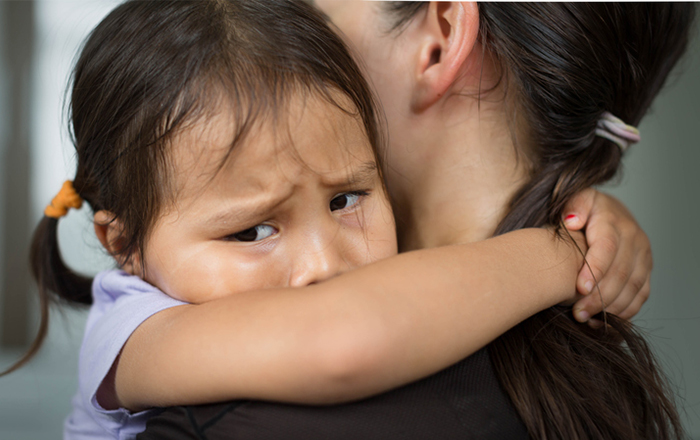One of the mysteries of raising an adopted child is that it’s often hard to know whether behavior is a result of adoption or just a normal step in the development process.
Because my daughter, Kira, had spent the beginning of her life in an orphanage, I worked consciously to build her up — nutritionally, developmentally, and psychologically. And since I’d adopted Kira shortly after completing a master’s degree in education, I used everything I had learned about child development. Still, every day brought new puzzles.
From an outsider’s view, my daughter appeared independent and agile. By age three, she was tying her shoes and bounding from one monkey bar to another at the playground. But at home she often wanted to be treated like a baby. When other children were climbing out of their cribs, mine wanted to stay safely locked inside hers. Kira liked to crawl all over me and flail her arms in a way she thought made her look more like a baby. Long after other children her age had relinquished their nighttime bottles, mine could not seem to let go. I was careful to remove the bottle from her mouth to prevent tooth decay, but reluctant to forbid it. It seemed too important to her.
Finally, at three, her crib was replaced by a toddler bed, and, just as I was beginning to fear she would take her bottle to the prom, it slipped effortlessly from her mouth. Were we alone in this situation? Not at all. I have since learned about other bottles hidden away in cupboards and other toddlers who like to curl up in their parents’ laps to play baby.
The Uses of Regression
Psychologists tell us that some children regress in order to calm themselves or regain control. This seems normal — and logical. Still, it can be hard for parents when regressive behaviors come just as we’ve gotten past the “terrible twos,” and when pediatricians are telling us to throw away the bottles.
Often babyish behaviors disappear without our learning their cause. Did my child want to be treated like a baby to recreate and mend her past, or simply because she liked it? If we satisfy our children’s needs until they are quenched, will new memories replace recollections of neglect? I’ve seen many toddlers — adopted and not — return, over and over, to the nurturing rituals of infancy before they feel ready to step into the next phase of their lives. Our job is less to wonder why than to provide strong arms and a warm lap to hold them — until they’re ready to move on.


